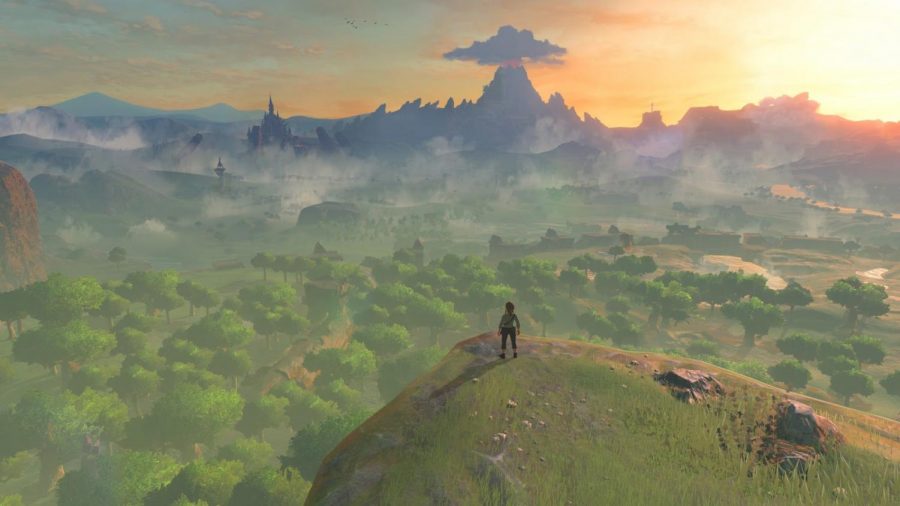The Pandemic is Proof That Video Games Are Good For You
November 14, 2020
Prior to March 2020, I was the half-committed type of video game player — mostly dabbling with “Zelda” during semester breaks, or “Super Smash” when I got together with friends on the weekends. I definitely couldn’t have called myself a gamer, but the pandemic changed that.
This year I found myself devoting hours to “Mario Kart,” improving my pathetic first-person-shooter skills in “Star Wars Battlefront II” and finally confronting Calamity Ganon after playing “The Legend of Zelda: Breath of the Wild” on and off for over a year. But I’m not alone in how I’ve chosen to spend a good chunk of my newfound time spent at home. At the peak of the U.S. lockdown this spring, “Animal Crossing: New Horizons” dominated social media as many Nintendo Switch users turned to it for wholesome gameplay and its ability to bring players together online. And although I’ve never played it, I’ve seen plenty of “Among Us” memes, hearing all about this entertaining, multiplayer iPhone game from friends.
This is not just anecdotal — statistics also show that we were already falling deeper in love with video games, the pandemic simply expedited the process. Viewership of the streaming service Twitch more than doubled between January and March of this year, with more and more gamers saying their time spent playing video games has continuously increased since the pandemic began. As of September, U.S. video game sales in 2020 increased 23% from last year, with a major spike of almost 75% between April 2019 and April 2020.
Video games aren’t the mind-numbing distraction they’re often made out to be. Sure, this can often be the case — there may or may not have been a time this summer when I was unemployed and did nothing but play “Civilization VI” until 4 a.m. every morning — but there’s a lot more to them than just escapism.
Video games are offering real solace during this time of immense anxiety. The opportunity to immerse yourself in fictional struggles, exert direct control over your environment and experience moving artwork — such as the landscapes of “Breath of the Wild” — can do wonders for mental health. Video games are also offering a level of social connectedness that no other medium can safely deliver right now. In March, the World Health Organization came out in support of the video game industry, recommending at-home digital play as a COVID-safe way for individuals to combat the negative impacts of quarantining.
Joe Todd, a doctoral student in Recreation Studies, argues that video games can be a valuable educational resource. Speaking to the benefits for young students in online classes, Todd said, “games can create a fun learning environment designed to keep our physically distanced selves at home while remaining social and continuing to learn.” Also growing in popularity in the U.S. are high school esports teams — even my mom started assistant-coaching one this fall — which creates a community where students can explore hobbies that have long been pushed to the margins.
It goes without saying that no technology can replace experiencing the outdoors in-person — spending time with actual human beings — and too much screen time can be a dangerous thing. But it’s clear the cultural aversion to video games is outdated — especially as winter arrives and most gatherings between non-family members are prohibited by the state government, for the time being. I think it’s safe to say that digital play is a net positive for human health during this time. After all, video games can offer us an escape, cognitive stimulation and a sense of social connectedness. In this messy era of human history, I’m grateful for this.








